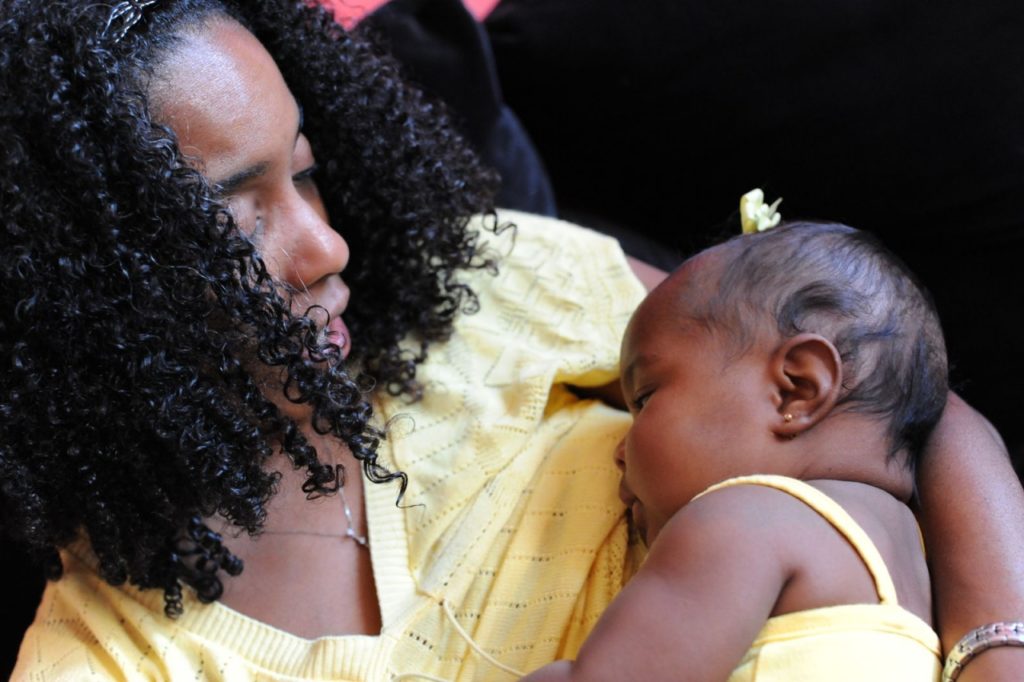In Nigeria, there are varying beliefs regarding early breastfeeding. WHO says they put babies at risk of diseases and death
While it has been well documented that breastfeeding within an hour after birth is critical for saving newborn lives, only 3 out of 10 newborns in Nigeria are put to breast within this critical period. This means about 70% of babies are not breastfed within this period in Nigeria, against a global estimate of only 20% of babies not put to breast within the period.
Since UNICEF began to keep records, more educated women in Nigeria had been breastfeeding their babies within one hour of delivery. But this has been reducing since 2013. And according to the latest figures, the gap between well educated Nigerian mothers and those with no education or primary education is closing.
While it is now less than 1%, the trend suggested that as the number of educated mothers that are breastfeeding their babies within one hour of birth reduces, the trend among those with no or minimal education would either stabilize or continue to rise.
Rural versus urban
The data released also suggested that the proportion of babies delivered at rural areas in Nigeria that were breastfed within 1 hour of delivery has surpassed the UNICEF estimate for urban areas.
According to data analysed by healthnews.africa, while the figures for Nigeria’s urban areas were reducing between 2013 and 2017 after a sharp rise between 2011 and 2013. On the other hand, figures for Nigeria’s rural areas had consistently risen since 2011 indicating that the region had sustained the tempo that started in 2011 when only about 23% of babies were breastfed within 1 hour of delivery. This had risen to about 33% indicating a gain of 10% within 5 years.
Commenting on the positive outlook at Nigeria’s rural areas, healthnews.africa contributor and Executive Director of the African Development and Empowerment Foundation (AfricanDEF), Dr. Victoria Adepoju said the positive trend in the rural areas of Nigeria is a welcome development that indicated that the level of awareness in the regions is on the rise.
“It indicates that people are getting more aware about the importance of early breastfeeding in the rural areas of Nigeria,” she said.
‘Traditional beliefs and ignorance’
On the other hand, healthnews.africa contributor and public health expert, Dr. Adetola Oladimeji, blamed the Nigerian outlook on the impact of traditional beliefs and ignorance.
According to her, some women believe that colostrum, the first breastmilk produced by the mother, is dirty and should be milked out and thrown away.
There are varying beliefs, she said.
Some believe that the child should have some kind of special water first. Or that he should pass meconium first
“Some believe that the child should have some kind of special water first. Or that he should pass meconium first.”
She noted that lack of knowledge of the right thing to do is a major reason for Nigeria’s poor breastfeeding statistics.
“Ignorance of the right thing among health care workers and women is largely responsible for this trend in Nigeria,” she said.
Global issue
According to the World Health Organization (WHO), babies that are not breastfed within 1 hour of delivery are at higher risk of death and disease; they are also less likely to continue breastfeeding.
According to the joint report released by WHO and UNICEF, newborns who breastfeed in the first hour of life are significantly more likely to survive.
WHO added that even a delay of a few hours after birth could pose life-threatening consequences. Skin-to-skin contact along with suckling at the breast stimulate the mother’s production of breastmilk, including colostrum, also called the baby’s ‘first vaccine’, which is extremely rich in nutrients and antibodies.
“When it comes to the start of breastfeeding, timing is everything. In many countries, it can even be a matter of life or death,” says Henrietta H. Fore, UNICEF Executive Director. “Yet each year, millions of newborns miss out on the benefits of early breastfeeding and the reasons – all too often – are things we can change. Mothers simply don’t receive enough support to breastfeed within those crucial minutes after birth, even from medical personnel at health facilities.”
Breastfeeding rates within the first hour after birth are highest in Eastern and Southern Africa (65%) and lowest in East Asia and the Pacific (32%), the report says. Nearly 9 in 10 babies born in Burundi, Sri Lanka and Vanuatu are breastfed within the first hour. By contrast, only two in 10 babies born in Azerbaijan, Chad and Montenegro do so.
“Breastfeeding gives children the best possible start in life,” says Dr Tedros Adhanom Ghebreyesus, WHO Director-General. “We must urgently scale up support to mothers – be it from family members, health care workers, employers and governments, so they can give their children the start they deserve.”
